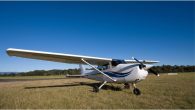Whether you have to insure your aircraft and whether you should insure your aircraft are two very different questions that new aircraft owners need to answer. When considering an aircraft purchase, people are often surprised to learn that no federal laws or requirements, specifically by the FAA, that require aircraft owners to carry liability or any other type of aircraft insurance. But that doesn’t necessarily mean you can or should go uninsured.
Here are some circumstances you may be required to carry aircraft insurance as well as how to assess whether you should consider any coverage that is not required.
When Am I Required To Insure My Aircraft?
As an aircraft owner, you may need to show proof of insurance in the following circumstances. This is certainly not an inclusive list.
You should keep a Certificate of Insurance on your aircraft to ensure you can always provide proof of coverage as necessary.
Lender Requirements
Financing an aircraft purchase is no different than getting an auto loan or mortgage. The lender will have specific insurance requirements, typically liability and physical damage insurance coverage, that you must carry during the duration of your loan.
State Requirements
Some states require aircraft owners to carry liability insurance as a minimum, but unlike auto insurance, most states do not require that you carry a comprehensive aircraft insurance policy or set minimum liability insurance requirements for aircraft owners.
FBO/Private Airfield Requirements
Of course, any FBO services or airfields you use will typically require liability and possibly require general aviation coverage. If your aircraft is uninsured, an FBO could deny you service.
Additionally, whenever you fly, you should check insurance requirements wherever you will be landing. You could be denied a landing permit if you do not have proof of necessary insurance.
Hangar Requirements
If you rent or own an aircraft hangar, the airport will typically require a $1,000,000 premises liability insurance policy that covers (slip and fall) accidents within the hangar. This coverage is usually included with owned-aircraft insurance policies and you do not need a separate insurance policy.
International Requirements
Flying outside of the United States brings a different set of requirements and insurance considerations. If flying to Mexico for example, you will need to obtain a Mexican Certificate of insurance, which is basically a translated copy of your US aircraft insurance policy.
Should I Insure My Aircraft?
Almost every aircraft owner should carry at the very least a liability only insurance policy. But what about other types of aircraft coverage? How do you determine which are worth buying and which are worth the risk of self-insuring?
Self Insuring
Self-insuring simply means that you cover any potential loss yourself rather than paying premiums to an insurer to cover any loss. Regarding optional coverages, each aircraft owner must weigh their own risk. Some aircraft owners have the financial means to repair or replace their damaged aircraft. Others are willing to gamble that they won’t ever need to cover such costs. Or, if they do, they understand that the loss could mean the loss of their aircraft all together.
Assessing Risk
Risk analysis of whether you should insure your aircraft comes down to how much you’ll save on insurance premiums without it vs. how much it could cost you if you don’t carry it. It also comes down to how and how often you use your aircraft.
Pilots who only fly occasionally face less risk than those who fly several times a month. Those who often have a passenger on board face more liability risk and exposure than those who typically fly solo.
Only you can assess the likelihood of something happening based on your individual circumstances. How and how often you use your aircraft should be part of the discussion with your aviation insurance professional, when deciding coverage needs.
Get Help Assessing Your Aviation Insurance Risks and Needs
Buying the minimum required insurance is certainly one way to save on aircraft ownership costs, but if you aren’t careful, if could cost you more in the end.
When deciding how much and what types of aircraft insurance coverage you should carry, you need to consult a knowledgeable and trusted broker. They can thoroughly explain the different types of coverage and then help you determine which coverage you must carry, the coverage you should consider and the coverage you can do without.
With over 55 years of experience insuring aircraft, BWI Aviation Insurance can help you determine your insurance needs and make sure you are neither under nor over-insured. Call us at 800-666-4359 with any questions or to get a quote. Our knowledgeable representatives are ready to assist you.
Why choose BWI Aviation Insurance?
Over our 42 year history, BWI has built longstanding relationships with all of the above Aviation Insurance Companies. We work hand in hand with the above companies and leverage our experience to find the best market for your particular airplane insurance risk.
To ensure that you are getting the absolute lowest rate and best coverage with a rock solid A+ rated Aviation Insurance company, get a quote with BWI today. We specialize only in Airplane Insurance and our office is open 12 hours a day. Our agents are friendly and knowledgeable, and most importantly they are agents that you can trust to get you the best coverage for your needs. Aviation Insurance is all that we do and have done for 42 years.
Call 800.666.4359 today for a free Airplane Insurance Quote or Click Here to submit a quote request online.
BWI is the Nation’s Leader in Aviation Insurance, with offices based in Corona, CA and Anchorage, AK
Continue Reading



